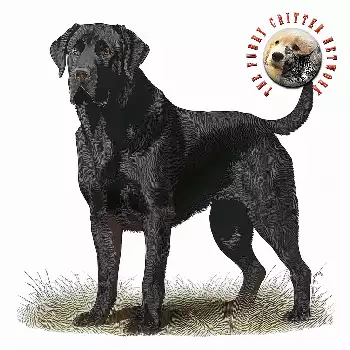The behavioral profile of the Perro de Pastor Mallorquin reflects centuries of selective breeding for working capability, resulting in a complex personality that combines independence with loyalty, confidence with caution, and strength with sensitivity. These dogs display a characteristically calm and composed demeanor that belies their alert awareness of their surroundings. Their behavior is marked by a thoughtful, assessing quality that allows them to evaluate situations carefully before responding, a trait essential to their historical role as decision-making working dogs.
One of the most distinctive behavioral characteristics of the breed is their selective bonding pattern. Perro de Pastor Mallorquin dogs typically form intense, exclusive bonds with their primary handler or family, showing deep loyalty and affection to their chosen people while remaining naturally reserved with others. This bonding selectivity is not merely antisocial behavior but rather an adaptive trait that ensured working dogs remained focused on their designated responsibilities rather than becoming distracted by every person they encountered.
Intelligence is a defining behavioral trait that manifests in multiple ways throughout the breed's interactions with their environment. These dogs demonstrate exceptional problem-solving abilities, often working out solutions to challenges independently rather than relying solely on human direction. Their intelligence extends to emotional perception, as they are highly attuned to their handler's moods and intentions, often anticipating needs and responding to subtle cues that less perceptive breeds might miss entirely.
The breed's territorial behavior is well-developed but controlled, reflecting their guardian heritage. Perro de Pastor Mallorquin dogs establish clear territorial boundaries and monitor these areas consistently, but they are not indiscriminately aggressive toward intruders. Instead, they employ a graduated response system, beginning with alerting behaviors such as barking and positioning, escalating to more assertive displays only when initial warnings are ignored. This measured approach to territorial defense makes them reliable protectors without creating unnecessary conflicts.
Work drive and task orientation are fundamental aspects of the breed's behavioral makeup. These dogs possess an inherent need for purposeful activity and can become restless or develop behavioral issues if not provided with adequate mental and physical stimulation. Their work ethic is notable for its persistence and focus; once engaged in a task, they will continue working with minimal supervision until completion. This dedication extends to training sessions, where they often display remarkable persistence in mastering new skills.
Social behavior with other dogs reflects the breed's working background and pack dynamics. Perro de Pastor Mallorquin dogs typically establish clear hierarchical relationships with other dogs in their environment, preferring stable social structures over constant competition. They can be somewhat dominant with unfamiliar dogs but are generally not aggressive without cause. Their herding instincts may influence their interactions with smaller dogs or animals, leading them to attempt to control movement and positioning in group situations.
Communication patterns in the breed include a rich variety of vocalizations and body language signals. Beyond basic barking for alerts, these dogs employ different vocal tones and intensities to convey various messages to their handlers and other dogs. Their body language is particularly expressive, with subtle changes in posture, ear position, and tail carriage communicating their emotional state and intentions. Understanding these communication patterns greatly enhances the human-dog relationship and working effectiveness.

